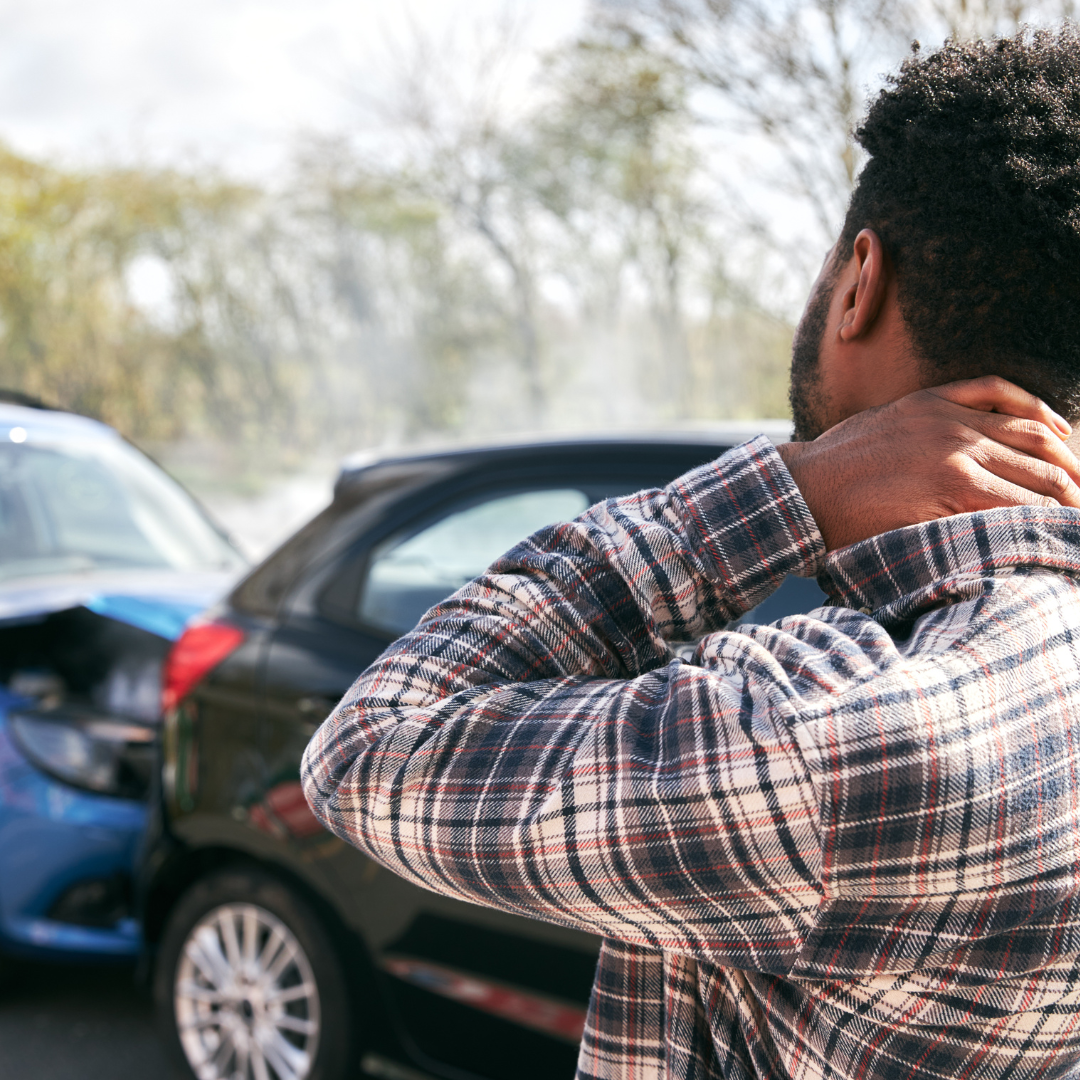Navigating Compensation: Understanding the Financial Aspects of Car Accident Claims
Car accidents are unforeseen events that can have profound consequences, both physically and financially. When faced with the aftermath of a collision, many individuals wonder about the potential financial compensation they may receive to cover medical expenses, property damage, lost wages, and other damages resulting from the accident.
In this blog post, we discuss the intricate world of car accident claims, shedding light on the factors that influence the financial aspects of compensation. Whether you are navigating this process for the first time or seeking additional insights, the goal is ensuring you are equipped with the knowledge to pursue fair compensation.
Immediate Steps After a Car Accident
Experiencing a car accident is a disorienting and stressful situation, but taking immediate and appropriate steps is crucial for ensuring safety, documenting the incident, and laying the groundwork for any potential legal or insurance claims.
Below is a detailed guide on the immediate steps a person should take after a car accident:
Ensure Safety
If possible, move vehicles to a safe location, especially if the accident occurred on a busy road. Turn on hazard lights to alert other drivers. Assess your own well-being and that of passengers. If there are bodily injuries, call emergency services immediately. Even if injuries seem minor, seek medical attention promptly. Injuries may not be immediately apparent, and medical documentation is crucial for insurance claims. Keep emotions in check and avoid confrontation with other parties involved. Focus on gathering necessary information calmly.
Call the Police
Dial emergency services to report the accident and request police assistance. A police report is crucial for properly documenting insurance claims and pursuing legal action. Cooperate with law enforcement in providing accurate information for the police report. Remember to obtain a copy of the report for your records.
In Florida, there is a statute of limitations that sets a time limit for filing a personal injury lawsuit. The statute of limitations varies depending on the type of injury and the circumstances of the case. Here are some key points related to the statute of limitations for personal injury cases in Florida:
1. General Time Limit:
- For most personal injury cases, including those arising from car accidents, slip and fall incidents, or other forms of negligence, the general statute of limitations in Florida is two years. This means that an individual generally has two years from the date of the accident or injury to file a lawsuit.
2. Wrongful Death:
- In cases of wrongful death, where a person dies as a result of another party's negligence, the statute of limitations is generally two years. This period starts from the date of the person's death.
3. Medical Malpractice:
- Medical malpractice cases have a more specific set of rules. The injured party typically has two years from the time they knew or should have known about the injury to file a lawsuit.
4. Minors:
- If the injured party is a minor at the time of the incident, the statute of limitations may be extended.
5. Government Entities:
- When a personal injury claim involves a government entity or employee, there are specific notice requirements and a shorter time frame to file a lawsuit.
It's crucial for individuals who have suffered injuries to be aware of these time limits. Failing to file a lawsuit within the specified timeframe may result in the loss of the right to seek compensation. Seeking legal advice promptly after an injury can help ensure that the necessary steps are taken within the applicable statute of limitations.
Exchange Information and Document the Scene
Be proactive. Share names, contact information, insurance details, and vehicle registration information with the other involved parties. This information is essential for filing insurance claims. Take photos of the accident scene, vehicle damage, license plates, and any relevant road signs. Visual documentation serves as valuable evidence. If there are witnesses, gather their names and contact details. Witness statements can provide additional perspectives and strengthen your case. In addition, do not repair or dispose of the damaged vehicle until advised by your insurance company. Preserve any evidence, such as clothing or personal items damaged during the accident.
Do Not Admit Fault
Avoid making statements that could be interpreted as an admission of fault. Leave fault determination to the authorities and insurance companies. Contact your insurance company as soon as possible to report the accident. Provide them with the details and follow their guidance on the claims process. If the accident involves serious injuries or complex circumstances, consider consulting with a car accident attorney to understand your legal rights and potential legal options.
By following these immediate steps after a car accident, individuals can contribute to a smoother claims process, ensure their safety, and gather the necessary documentation for any potential legal action.
Factors Affecting Compensation
Swift and informed actions in the aftermath of an accident can have a significant impact on the overall resolution of the situation. The amount of compensation a person can receive from a car accident greatly varies, and understanding these factors is crucial for navigating the legal and insurance processes effectively. Here is a detailed exploration of the major factors:
Extent of Injuries
The severity of injuries sustained in the accident is a primary factor. For instance, if a person suffers long-term injuries that require extensive medical treatment, rehabilitation, or result in permanent disability, the compensation amount is likely to be higher. Catastrophic injuries, such as spinal cord injuries or traumatic brain injuries, often result in higher compensation, due to the profound and lasting impact on the victim's life.
Type of Accident
Car accidents can vary widely in terms of causes, severity, and the types of vehicles involved. Here are different types of car accidents:
Rear-End Collisions:
- One of the most common types of accidents.
- Occurs when one vehicle strikes the rear of the vehicle in front of it.
- Often caused by tailgating, sudden stops, or distracted driving.
Head-On Collisions:
- Occur when the front ends of two vehicles collide.
- Typically result in severe injuries due to the high impact force.
- Can happen when a driver crosses into oncoming traffic or on narrow roads.
Side-Impact or T-Bone Collisions:
- Happens when the front of one vehicle strikes the side of another.
- Common at intersections and often result in serious injuries.
- Failure to yield, running red lights, or stop sign violations can contribute.
Sideswipe Accidents:
- Occur when the sides of two parallel vehicles make contact.
- Common during lane changes or merging.
- Usually result in minor damages, but can lead to more serious accidents.
Single-Vehicle Accidents:
- Involve only one vehicle and may result from various factors.
- Examples include running off the road, hitting a stationary object, or rollovers.
- Weather conditions, road defects, or driver error can contribute.
Multi-Vehicle Pileups:
- Involve multiple vehicles colliding in a chain reaction.
- Often occur on highways, especially in adverse weather conditions.
- Visibility issues, sudden stops, and tailgating can contribute.
Parking Lot Accidents:
- Common in parking lots or garages.
- Typically involve low-speed collisions while vehicles are parking or maneuvering.
- Often result in minor damages but can still lead to insurance claims.
Run-Off-Road Accidents:
- Occur when a vehicle leaves the roadway.
- Can result from distracted driving, fatigue, or poor road conditions.
- May lead to collisions with trees, poles, or other obstacles.
Animal-Related Collisions:
- Involve collisions with animals, such as deer or livestock.
- Common in rural areas or places with abundant wildlife.
- Can cause significant damage and injuries.
Rollover Accidents:
- Involve a vehicle tipping onto its side or roof.
- Often caused by sharp turns, high speeds, or collisions.
-SUVs and trucks are more prone to rollovers due to their higher center of gravity.
Understanding the different types of car accidents can help drivers be more aware of potential risks and take precautions to reduce the likelihood of collisions. Additionally, it is crucial for individuals involved in accidents to know the appropriate steps to take, such as contacting law enforcement and exchanging information with other parties involved.
Medical Expenses:
The total medical expenses incurred due to the accident, including hospital bills, surgeries, medications, and ongoing treatments, play a significant role in determining compensation. Even the smallest accident will cause severe injuries. Your personal injury attorney will determine the cost to you to continue to receive treatment so you have a path to recovery.
Property Damage
The cost of repairing or replacing damaged vehicles and property is considered. In cases where the damage is extensive, the compensation amount may increase. In the context of a car accident, property damage refers to the harm caused to vehicles or other types of property as a result of the collision. This damage can encompass a range of issues, including:
1. Vehicle Damage: The most common form of property damage in a car accident is damage to the vehicles involved. This includes dents, scratches, broken windows, or more severe structural damage. Repairing or replacing damaged vehicles is often a significant component of property damage claims.
2. Personal Property: Property damage can extend beyond the vehicles themselves to include personal items within the vehicles. For example, if a laptop, phone, or other valuable possessions are damaged during the accident, their repair or replacement may be part of the property damage claim.
3. Public or Private Property: In some cases, a car accident may cause damage to public or private property such as fences, lampposts, or buildings. Property damage claims may involve compensation for the repair or replacement of these structures.
4. Rental Car Costs: If a damaged vehicle requires repairs, the owner may need to rent a replacement vehicle during the repair period. The cost of the rental car can be part of the property damage claim.
When dealing with property damage from a car accident, it is crucial to gather evidence, such as photographs, repair estimates, and receipts for any expenses incurred. Insurance companies typically handle property damage claims, and the amount of compensation is determined based on factors like the extent of the damage, repair costs, and the value of the damaged property.
Understanding the specifics of property damage is essential for individuals and businesses involved in car accidents to ensure accurate assessment and proper compensation for the losses incurred.
Lost Wages and Earning Capacity
Compensation may include lost wages due to time off work during recovery. If the accident results in a diminished ability to work or a permanent disability, the impact on future earning capacity is also taken into account. Here are key points to consider:
1. Calculating Lost Wages: To determine the amount of compensation for lost wages, it is essential to establish the individual's average income before the accident. This includes salary, bonuses, overtime, and other forms of income. If the individual is self-employed, determining lost income may involve examining profit and loss statements, tax returns, and other financial records.
2. Verification of Employment and Income: Insurance companies typically require documentation to verify the individual's employment and income. This may include pay stubs, tax returns, employment contracts, or statements from employers. Clear and accurate documentation is crucial for substantiating the claim for lost wages.
3. Duration of Lost Wages: The duration of time the individual is unable to work due to the car accident is a key factor in calculating lost wages. This may include time spent in the hospital, rehabilitation, or recovery at home. Additionally, if the injury results in a long-term or permanent disability affecting future earning capacity, this may also be considered in the compensation calculation.
4. Mitigation of Damages: In legal terms, the injured party has a duty to mitigate their damages, which means taking reasonable steps to minimize the impact of the injury on their income. This might involve following medical advice, attending rehabilitation sessions, or attempting to return to work in a limited capacity if possible.
5. Future Lost Wages: In cases where the injury leads to a long-term or permanent disability that affects the individual's ability to work in the future, compensation may also include estimated future lost wages. This involves projecting the potential earnings that the individual would have earned if not for the accident. It is important to note that the process of seeking compensation for lost wages is typically part of a larger personal injury claim, and individuals often work with legal professionals to navigate the complexities of such claims. Documentation and clear evidence play a crucial role in demonstrating the extent of the impact on an individual's earning capacity.
Pain and Suffering
There is no way you can estimate the value of an automobile accident based on the number of variables. Non-economic damages, such as pain and suffering, emotional distress, and loss of enjoyment of life, contribute to compensation. For instance, a person experiencing chronic pain or emotional trauma may be eligible for additional compensation.
The pain and suffering will likely determine the largest portion of your recovery. Pain has an important subjective aspect when these damages are considered. Many major insurance companies use an algorithm to estimate pain, and will seek to severely undervalue or even refuse to consider pain and suffering in your claim.
Comparative Negligence
Florida follows a comparative negligence system, meaning the compensation is adjusted based on each party's degree of fault. Florida follows a modified comparative negligence system, where plaintiffs are barred from recovery if their fault exceeds a certain threshold (usually 50%).
This system encourages a fair distribution of responsibility for accidents and injuries, taking into account the actions of all parties involved. It is important for businesses and individuals in Florida to be aware of this legal framework when evaluating potential liabilities in personal injury cases.
Insurance Coverage
The insurance policies involved, including personal injury protection (PIP) and liability coverage, also influence the available compensation. Florida's no-fault insurance system, requiring PIP coverage, impacts the initial steps in seeking compensation. Insurance policies also have bodily coverage limits. If the at-fault party's insurance coverage is limited, it will likely impact the maximum amount that can be recovered for your injuries and damages.
Statute of Limitations
In Florida, there is a statute of limitations that sets a time limit for filing a personal injury lawsuit. The statute of limitations varies depending on the type of injury and the circumstances of the case.
1.General Time Limit:
For most personal injury cases, including those arising from car accidents, slip and fall incidents, or other forms of negligence, the general statute of limitations in Florida is two years. This means that an individual generally has two years from the date of the accident or injury to file a lawsuit.
2. Wrongful Death:
In cases of wrongful death, where a person dies as a result of another party's negligence, the statute of limitations is generally two years. This period starts from the date of the person's death.
4. Minors:
If the injured party is a minor at the time of the incident, the statute of limitations may be extended, depending on the circumstances.
Failing to file a lawsuit within the specified timeframe may result in the loss of the right to seek compensation. Seeking legal advice promptly after an injury can help ensure that the necessary steps are taken within the applicable statute of limitations.
Legal Representation
Hiring a car accident attorney can significantly impact the compensation amount received. An attorney can negotiate with insurance companies, ensure all relevant factors are considered, and represent the injured party's interests in legal proceedings.
Witness Testimonies and Evidence
The availability and reliability of witness testimonies, along with evidence such as photographs, police reports, and medical records, strengthen the case and can influence the compensation amount received.
Navigating the aftermath of a car accident in Florida involves considering these multifaceted factors. Seeking legal advice and representation, thoroughly documenting the incident, and understanding the unique aspects of Florida's legal framework are crucial steps for ensuring fair compensation. Each case is unique, and a comprehensive approach is necessary for achieving the best possible outcome.
How Much Do Car Accidents Usually Settle For?
While it is challenging to provide a specific amount one might receive from a car accident in Florida, taking swift and comprehensive actions after the incident, gathering evidence, and seeking legal representation are paramount. The financial aspects of a car accident claim are influenced by various factors, and an experienced attorney can ensure you receive the compensation you rightfully deserve.
The insured's company may either settle the claim or litigate the case. If your car accident is finally resolved, the accident claims settlement is the final settlement that you have agreed with your legal representative to receive. Settlements for auto accidents may vary depending on the severity and permanency of the bodily injuries sustained, and the time required to for a successful recovery ultimately varies depending on the circumstances of each case.Typically, people suffering minor and permanent injuries will have lower settlements, than people who require surgery or are permanently injured as a result of the accident.
If you have been injured in a car accident, you may have a claim against the driver of the other vehicles involved, and any other negligent party involved in the collision.
Call or Text theDaniel Sagiv Law Group at 561-569-1387.












